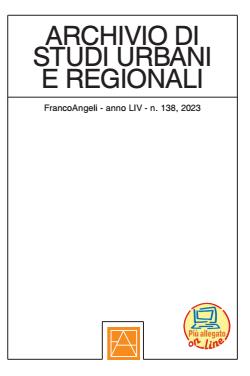
LIBRI DI CAROLINA PACCHI
La ricerca ha estratto dal catalogo 22 titoli


Creatività, innovazione e impatto sociale
Gli spazi collaborativi sono nuovi luoghi di lavoro, come coworking, incubatori o hub creativi. Questo libro raccoglie i contributi di studiosi che da anni si occupano del fenomeno degli spazi collaborativi, offrendo strumenti di analisi e di gestione che possono essere d’aiuto sia per i gestori di questi luoghi sia per gli amministratori locali che vogliono utilizzare tali spazi per l’implementazione di politiche di sviluppo territoriale e di sostegno al lavoro.
cod. 366.144
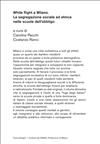
La segregazione sociale ed etnica nelle scuole dell'obbligo
I risultati di una ricerca sulla segregazione territoriale e scolastica a Milano. Lo studio è fondato su analisi cartografiche e statistiche sulla popolazione delle scuole dell’obbligo a Milano, accompagnate da approfondimenti qualitativi e interviste realizzati in alcuni quartieri e in due comuni della regione urbana milanese.
cod. 330.1

L’articolo propone di esplorare le potenzialità euristiche del concetto di paesaggio educativo. A partire da una lettura intrecciata di queste variabili, e da alcune evi-denze empiriche sulle città di Milano, Barcellona e Oslo , l’articolo riflette critica-mente su come questo concetto possa essere utile per affrontare le crescenti dise-guaglianze educative e i fenomeni di segregazione di studenti svantaggiati.
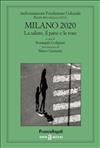
La salute, il pane e le rose
Ben prima che il Covid-19 stravolgesse la vita di milioni di persone, avevamo scelto di dedicare il Rapporto 2020 alle donne. Nonostante Milano sia una città per molti versi women-friendly, la questione femminile resta centrale. L’emergenza sanitaria ha fatto irruzione nella fase di elaborazione del Rapporto, ma non ci siamo sottratti alla sfida e abbiamo messo in dialogo quanto stavamo scrivendo con quanto stava accadendo. Abbiamo approfondito alcuni aspetti delle condizioni di vita e di lavoro delle donne a Milano, i miglioramenti registrati negli ultimi anni e le diseguaglianze ancora presenti, le forme di fragilità e i protagonismi
cod. 11260.2

Looking at different European case studies, this section aims to investigate how and why national and local agendas have embedded community entrepreneurship practices in urban development strategies and which outcomes they have experienced. The twofold objective is to question: (1) the policy rationales behind community entrepreneurship agendas, factors and tools that have promoted entrepreneurial initiatives in urban contexts and how these have determined social and economic developments; (2) new theoretical frameworks able to improve the understanding of community engagement practices and outcomes, bridging the knowledge gap on the relationships between entrepreneurship, citizen participation, and possible urban development agendas.

This paper argues that, amid a vast array of community initiatives emerging in European cities, community based enterprises stand out due to their specific features, linked to the entrepreneurial dimension and to an innovative organisational model. In the face of a clear difficulty to understand and assess the relationship between these forms of societal selforganisation/ activism and transformative effects in the territorial realm, there is a risk of overstating the relevance of niche initiatives or understating potential for significant change. The paper proposes to test some interpretative categories in order to more precisely frame the possible roles and urban effects of this emerging phenomenon, within the framework of a changed governance.
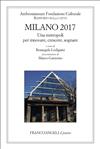
Rapporto sulla città. Una metropoli per innovare, crescere, sognare
Quale innovazione per la città? Tecnologica o sociale? Di prodotto o di processo? Radicale o incrementale? Milano sembra aver preso la sua strada, optando per il modello di "innovazione sociale inclusiva". Il Rapporto Ambrosianeum 2017 entra nel merito di questa scelta, osservando ciò che accade in alcuni campi privilegiati - il lavoro e le imprese 4.0, le università e la ricerca, il welfare e le nuove pratiche di condivisione - e mostrando che l’innovazione può essere alla portata di tutti. O quasi.
cod. 1260.96
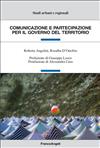
La comunicazione delle scelte urbanistiche e la costruzione su queste ultime di processi reali di partecipazione sono oggi al centro di una estrema varietà di iniziative, che questo volume passa in rassegna con riferimento all’evoluzione nel tempo di esperienze di risalto nazionale e ad altre che si riferiscono alle regioni Marche e Abruzzo.
cod. 1740.138

Is it possible to reform schools of architecture in Italy? - The crisis of architectural schools in Italy and the profound uncertainty running through practices and the teaching of architectural and planning disciplines has roots which date back a long time. If we re-read today some of the texts and public actions of some of the greatest Italian architects or critics of architecture such as Giovanni Michelucci, Giancarlo De Carlo, Leonardo Benevolo and Bruno Zevi, in dissent with the scientific and academic communities to which they belonged, it is hard not to grasp, with the benefit of hindsight, the lucidity of their intellectual positions and the urgency of their arguments. Four episodes are presented which allow us to return to the issue of training architects in their relationship with the professional dimension and also with society and to consider more generally the crisis of inherited models of university education, which no longer seem able to meet the challenges of today.

Community voices. Emerging phenomena, forms of organization and methods of debate - The paper highlights the possibilities and limits of grass roots action by committees and other forms of self-organisation of civil society at local level in situations of conflict due to the siting of infrastructure projects. It traces a profile of the forms of direct mobilisation which can be attributed, at international level, to two families of possible strategies: strongly institutionalised strategies on the one hand (the French Commission Nationale du Débat Public, the Tuscan Regional law which is based on it) and specially formulated strategies for specific decision-making processes for which the tradition of United States type consensus building is perhaps the most influential. The limits and possibilities of each of these families have only been partly studied and knowledge of them is only partial, while there seems to be less frequent pursuit today of forms of dialogue and interaction in which some officially accepted principles may be accompanied by a relative openness to the priorities of the issues to be dealt with, to the sources of technical and scientific knowledge to activate and to the actors to be involved. To move further in this direction of work would lead to the construction of paths specific to each project, with a greater degree of transparency and legitimation.
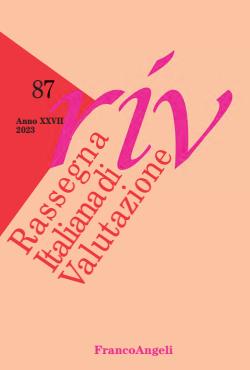


Cronache e appunti su paesaggi/territori in trasformazione. Atti della VII conferenza Siu
cod. 1740.105



Risorse per l'azione locale
cod. 1740.103


